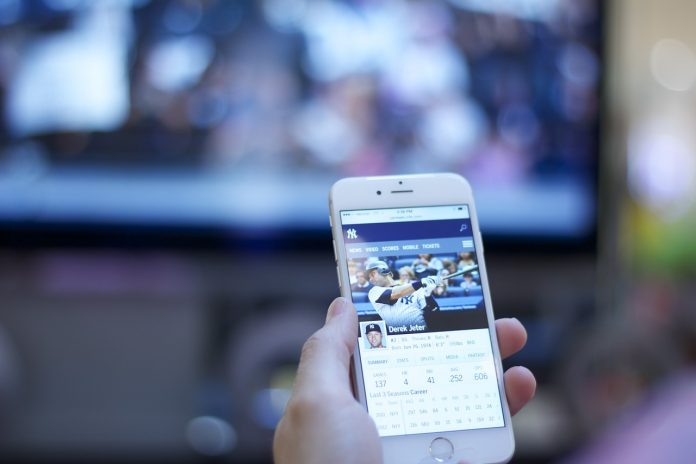In business, choosing the right mobile phone is crucial. It’s not just about making calls; it’s about having a powerful tool that can handle emails, video conferences, project management apps, and much more. This guide will walk you through the key factors to consider when selecting a mobile phone for business purposes, ensuring that you make an informed decision that will enhance productivity and efficiency.
Understanding Your Business Needs
The first step in choosing a mobile phone for business is understanding your specific needs. Here are some questions to ask:
- What are the primary functions you need? Consider whether you need a phone primarily for calls and messages, or if you require advanced features like email, document editing, and video conferencing.
- How much storage do you need? Think about the types of files you’ll be storing. If you handle large files or extensive media, a phone with higher storage capacity will be necessary.
- What is your budget? Determine how much you are willing to spend, keeping in mind that investing in a good phone can pay off in the long run through increased productivity.
Operating System: iOS vs. Android
One of the biggest decisions you’ll face is choosing between iOS (Apple) and Android. Each has its strengths and weaknesses.
iOS (Apple)
- Pros:
- User Experience: iOS is known for its intuitive interface and ease of use.
- Security: iPhones have strong security features, including regular updates and robust app screening processes.
- Integration: Seamlessly integrates with other Apple products like MacBooks and iPads, which is beneficial if you use an Apple ecosystem.
- App Quality: Many business apps are often first released on iOS, sometimes with better optimization and features.
- Cons:
- Cost: iPhones are generally more expensive than their Android counterparts. To get deals on iPhone models like the iPhone 13, it’s best to use a price comparison tool.
- Customization: Limited compared to Android.
Android
- Pros:
- Variety: Offers a wide range of devices from various manufacturers at different price points.
- Customization: Highly customizable in terms of interface and functionality.
- Integration: Good integration with Google services, which many businesses rely on.
- Expandable Storage: Many Android phones allow you to expand storage via SD cards.
- Cons:
- Fragmentation: Different devices may have different versions of Android, leading to inconsistencies.
- Security: While improving, historically less secure than iOS due to its open nature.
Key Features to Consider
Performance
- Processor: The processor (CPU) determines the phone’s speed and ability to handle multiple tasks. Look for phones with the latest processors like Apple’s A-series chips or Qualcomm’s Snapdragon.
- RAM: At least 4GB of RAM is recommended for smooth multitasking, though 6GB or more is ideal for heavy usage.
Battery Life
- Capacity: Business phones should have a battery that lasts at least a full workday. Look for phones with batteries around 3000mAh or higher.
- Fast Charging: This feature can be a lifesaver when you need to quickly charge your phone during a busy day.
Display
- Size and Resolution: A larger screen with high resolution (Full HD or higher) can make reading emails and editing documents easier.
- Type: OLED screens provide better color accuracy and battery efficiency compared to LCDs.
Camera Quality
While not always a primary concern for business, a good camera can be useful for scanning documents, attending video conferences, or capturing high-quality photos for presentations and reports.
Security Features
- Biometrics: Look for phones with fingerprint sensors or facial recognition for quick and secure access.
- Encryption: Ensure the phone offers robust encryption options for data security.
- Updates: Regular security updates are crucial. Phones from manufacturers with a good track record of providing timely updates are preferable.
Connectivity
- 5G: Future-proof your device with 5G capabilities for faster internet speeds.
- Wi-Fi 6: The latest Wi-Fi standard offers improved performance in congested areas.
- Bluetooth 5.0: For better connectivity with accessories like wireless earbuds and smartwatches.
Software and Apps
Business Apps
- Email Clients: Ensure compatibility with your email provider, whether it’s Outlook, Gmail, or another service.
- Office Suites: Apps like Microsoft Office or Google Workspace are essential for document creation and editing.
- Project Management: Tools like Trello, Asana, or Monday.com can help manage tasks and collaborate with team members.
- Communication: Apps like Slack, Zoom, and Microsoft Teams are vital for staying in touch with colleagues and clients.
Customization and Productivity Tools
- Widgets and Shortcuts: Customizable widgets and shortcuts can streamline workflow by providing quick access to frequently used apps and functions.
- Automation: Look for phones that support automation apps like IFTTT (If This Then That) to automate repetitive tasks.
Durability and Build Quality
- Materials: Phones made with high-quality materials like aluminum or Gorilla Glass are more durable.
- Water and Dust Resistance: Features like IP68 certification ensure the phone can withstand dust and immersion in water.
Additional Considerations
Brand and Support
- Brand Reputation: Choose a brand known for reliable products and good customer support.
- Warranty and Insurance: Consider the availability of warranty and insurance options to protect your investment.
Eco-friendliness
- Sustainable Practices: Some brands are more committed to sustainability and eco-friendly practices, which can be an important factor for environmentally conscious businesses.
Recommended Models
iPhone 14 Pro
- Pros: Powerful A16 Bionic chip, excellent camera system, robust security features, seamless integration with Apple ecosystem.
- Cons: Expensive, limited customization options.
Samsung Galaxy S23 Ultra
- Pros: Top-of-the-line Snapdragon 8 Gen 2 processor, versatile camera system, expandable storage, high customization.
- Cons: Expensive, Samsung’s One UI can be overwhelming for some users.
Google Pixel 7 Pro
- Pros: Pure Android experience with timely updates, excellent camera, integration with Google services.
- Cons: Limited availability of high-end models in some regions.
OnePlus 11
- Pros: Powerful performance, competitive pricing, fast charging.
- Cons: Camera quality is not as high as other flagship phones.
Motorola Edge+
- Pros: Good balance of performance and price, solid battery life, near-stock Android experience.
- Cons: Camera system could be better, less frequent software updates.
Conclusion
By focusing on your specific needs and understanding the strengths and weaknesses of different operating systems and models, you can select a device that enhances your productivity and supports your business activities effectively. The best phone for your business is one that seamlessly integrates into your workflow, offers reliable performance, and provides the necessary tools to keep you connected and productive.








